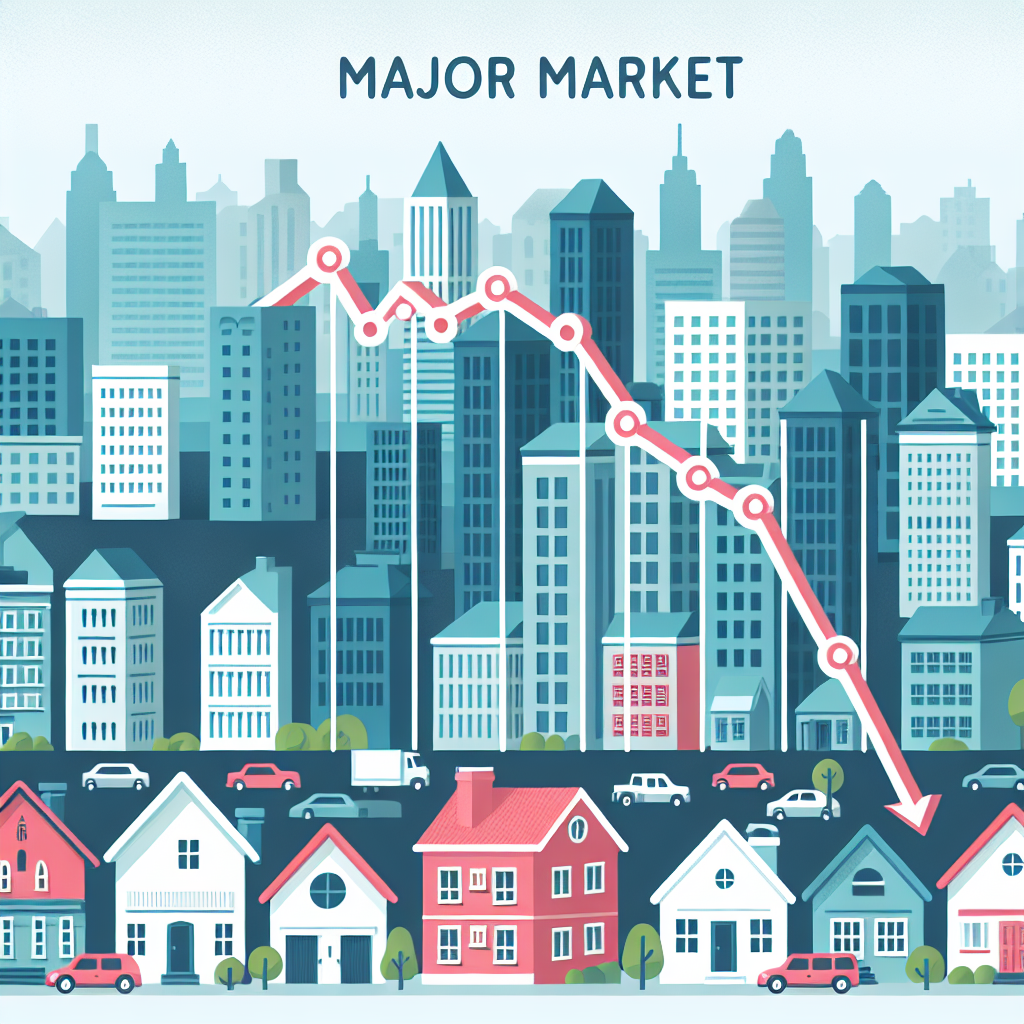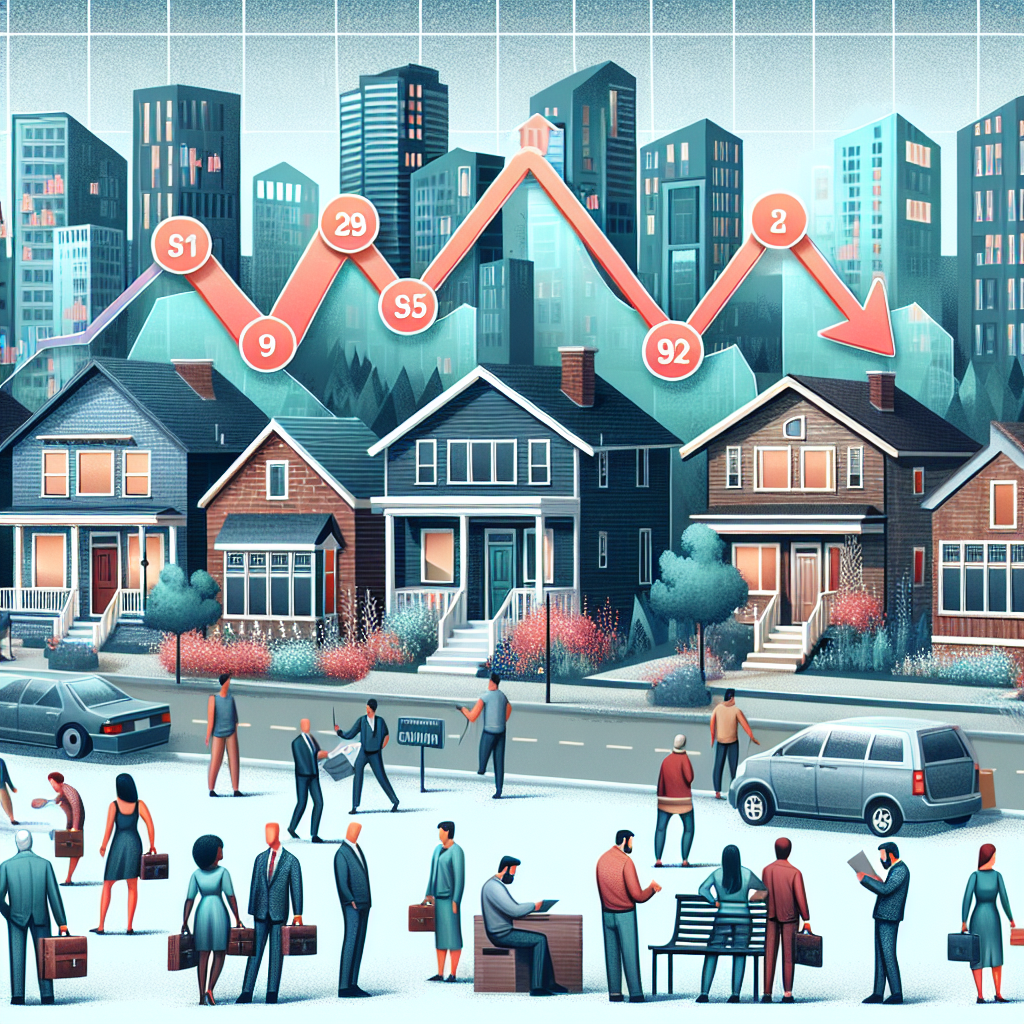-
Table of Contents
- Housing Prices Decline in Just One Major Market
- Overview of the Decline
- Key Statistics
- Factors Contributing to the Decline
- Economic Downturn
- Population Decline
- High Property Taxes
- Oversupply of Housing
- Case Studies
- Case Study 1: The Homeowner
- Case Study 2: The Investor
- Implications for Homeowners and Investors
- Negative Equity
- Decreased Rental Income
- Opportunities for Buyers
- Future Outlook
- Economic Recovery
- Government Intervention
- Market Adjustments
- Conclusion
Housing Prices Decline in Just One Major Market

The real estate market is a dynamic and ever-changing landscape, influenced by a myriad of factors ranging from economic conditions to demographic shifts. While many markets across the globe have experienced a surge in housing prices, there is one major market that has seen a notable decline. This article delves into the reasons behind this decline, the implications for homeowners and investors, and what the future might hold for this market.
Overview of the Decline
In recent years, the housing market in City X has experienced a significant downturn. Unlike other major cities where property values have soared, City X has seen a steady decline in housing prices. According to the latest data from the National Association of Realtors (NAR), the average home price in City X has dropped by 15% over the past year.
Key Statistics
- Average home price in City X: $350,000 (down from $410,000 last year)
- Number of homes sold: 5,000 (down from 7,500 last year)
- Average days on market: 60 (up from 30 last year)
Factors Contributing to the Decline
Several factors have contributed to the decline in housing prices in City X. Understanding these factors is crucial for stakeholders to navigate the current market conditions effectively.
Economic Downturn
One of the primary reasons for the decline in housing prices is the economic downturn that has affected City X. The city has faced significant job losses, particularly in the manufacturing and technology sectors. As a result, many residents have been forced to relocate in search of employment opportunities, leading to a decrease in demand for housing.
Population Decline
City X has also experienced a population decline over the past few years. According to the U.S. Census Bureau, the city’s population has decreased by 5% since 2020. This decline can be attributed to several factors, including the aforementioned job losses and a lack of affordable housing options. As more people leave the city, the demand for housing decreases, leading to lower prices.
High Property Taxes
Another contributing factor is the high property taxes in City X. Homeowners are burdened with some of the highest property tax rates in the country, making it less attractive for potential buyers. This has led to an increase in the number of homes on the market, further driving down prices.
Oversupply of Housing
The oversupply of housing in City X has also played a role in the decline in prices. During the housing boom, many developers built new homes and apartment complexes, anticipating continued growth. However, with the economic downturn and population decline, there is now an excess of available housing, leading to lower prices as sellers compete for buyers.
Case Studies
To better understand the impact of the housing price decline in City X, let’s examine a few case studies of homeowners and investors who have been affected by these changes.
Case Study 1: The Homeowner
Jane Doe purchased her home in City X in 2018 for $400,000. At the time, the market was thriving, and she believed her investment would appreciate over time. However, with the recent decline in housing prices, her home is now valued at $340,000. Jane is now faced with the difficult decision of whether to sell her home at a loss or wait for the market to recover.
Case Study 2: The Investor
John Smith is a real estate investor who purchased several rental properties in City X during the housing boom. He anticipated strong rental income and property appreciation. However, with the decline in housing prices and an oversupply of rental properties, John has struggled to find tenants and has had to lower his rental rates. This has significantly impacted his return on investment.
Implications for Homeowners and Investors
The decline in housing prices in City X has several implications for homeowners and investors. Understanding these implications can help stakeholders make informed decisions in this challenging market.
Negative Equity
Many homeowners in City X are now facing negative equity, meaning they owe more on their mortgage than their home is worth. This can make it difficult for them to sell their homes or refinance their mortgages. Homeowners in this situation may need to consider options such as loan modification or short sales.
Decreased Rental Income
For real estate investors, the decline in housing prices has led to decreased rental income. With an oversupply of rental properties, landlords are forced to lower their rental rates to attract tenants. This can impact their cash flow and overall return on investment.
Opportunities for Buyers
While the decline in housing prices presents challenges for homeowners and investors, it also creates opportunities for buyers. With lower prices and increased inventory, buyers have more options and bargaining power. This can be an ideal time for first-time homebuyers or those looking to invest in real estate at a lower cost.
Future Outlook
The future of the housing market in City X remains uncertain. Several factors will influence whether the market continues to decline or begins to recover.
Economic Recovery
The economic recovery of City X will play a crucial role in the future of its housing market. If the city can attract new businesses and create job opportunities, it may help stabilize the population and increase demand for housing. This, in turn, could lead to a recovery in housing prices.
Government Intervention
Government intervention may also be necessary to address the challenges facing the housing market in City X. This could include measures such as property tax relief, incentives for homebuyers, and programs to support homeowners facing negative equity. These interventions could help stabilize the market and prevent further declines in housing prices.
Market Adjustments
Over time, the housing market in City X may naturally adjust to the current conditions. As the oversupply of housing is absorbed and demand begins to increase, prices may start to stabilize. However, this process could take several years, and stakeholders will need to be patient and strategic in their approach.
Conclusion
The decline in housing prices in City X is a complex issue with multiple contributing factors. Economic downturns, population decline, high property taxes, and an oversupply of housing have all played a role in this market shift. While the decline presents challenges for homeowners and investors, it also creates opportunities for buyers. The future of the housing market in City X will depend on various factors, including economic recovery, government intervention, and natural market adjustments. By understanding these dynamics, stakeholders can make informed decisions and navigate the current market conditions effectively.
In summary, the housing market in City X serves as a reminder of the importance of staying informed and adaptable in the ever-changing real estate landscape. Whether you are a homeowner, investor, or potential buyer, understanding the factors driving market trends is crucial for making sound financial decisions.








